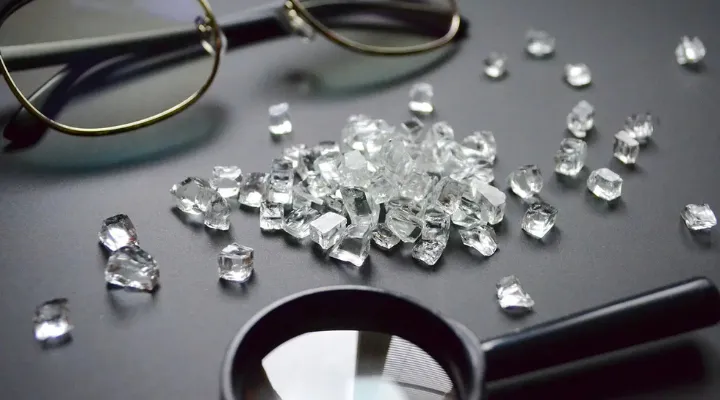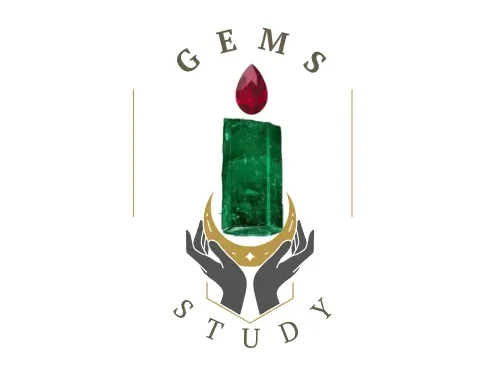Role of Gemologists:
Gemstones have fascinated humans for thousands of years. From their enchanting colors to their symbolic meanings and rarity, they’ve held an important place in cultures, religions, and societies around the world. But behind every sparkling gemstone lies the expertise of a gemologist—a highly trained professional who identifies, evaluates, and classifies these precious materials.
In this blog post, we will explore:
- What a gemologist does
- How to become a gemstone expert
- The skills, education, and certifications required
- The tools and technology used in gemology
- The career opportunities in this fascinating field
By the end of this article, you’ll have a clear understanding of the role of gemologists and what it takes to become one.
What Is a Gemologist?

A gemologist is a trained professional specializing in the study and evaluation of gemstones. They analyze various characteristics of gems, such as:
- Color
- Clarity
- Cut
- Carat weight
- Treatments (e.g., heat treatment, irradiation)
- Synthetic vs. natural origin
Gemologists work to authenticate gemstones, determine their value, and identify treatments or enhancements that may have been applied to the stones. They often work with jewelry designers, auction houses, museums, mining companies, and private collectors.
Key Responsibilities:
- Gemstone identification and classification
- Grading diamonds and colored stones
- Detecting gemstone treatments and enhancements
- Appraising gemstone and jewelry value
- Offering expert advice on buying or selling gems
- Working in laboratories, auctions, or jewelry retail

The Importance of Gemologists in the Gemstone Industry
Gemologists play a vital role in maintaining trust and transparency in the gemstone and jewelry industries. As gemstone treatments and synthetic alternatives become more sophisticated, it’s essential to have experts who can differentiate natural gemstones from imitations or synthetics.
Without gemologists, buyers and sellers would have no way to verify the authenticity and value of a gemstone. Their expertise ensures ethical sourcing, accurate valuation, and quality control, which benefits everyone from miners to consumers.
How to Become a Gemologist
1. Educational Requirements
While you don’t necessarily need a college degree to become a gemologist, many professionals start with a background in:
- Geology
- Mineralogy
- Chemistry
- Materials science
However, the most important qualifications come from specialized gemology schools and programs.
Top Gemology Institutes:

| Institute Name | Location | Notable Programs |
|---|---|---|
| Gemological Institute of America (GIA) | USA | Graduate Gemologist (GG), Accredited Jewelry Professional |
| International Gemological Institute (IGI) | Belgium/India | Graduate Gemologist, Diamond Grading |
| Asian Institute of Gemological Sciences (AIGS) | Thailand | Gemology Diploma, Ruby and Sapphire Identification |
| HRD Antwerp | Belgium | Diamond Grading, Gem Identification |
| SSEF Swiss Gemmological Institute | Switzerland | Advanced Gem Testing |
Common Courses Include:
- Gem identification
- Diamond grading
- Colored stone grading
- Synthetic gemstone detection
- Advanced gem testing techniques
- Jewelry design and appraisal
2. Certifications
After completing courses, you can earn certifications that improve your credibility and open up career opportunities.
Popular Certifications:
- Graduate Gemologist (GG) – GIA
- Fellow of the Gemmological Association of Great Britain (FGA)
- Accredited Gemologist – IGI
- Certified Gemologist Appraiser (CGA) – American Gem Society
Skills Needed to Become a Successful Gemologist
Being a gemologist is not just about studying rocks. It requires a combination of technical expertise, visual acuity, and business acumen.
Essential Skills:
- Attention to Detail: Gemologists must observe minute inclusions, color variations, and treatments.
- Analytical Thinking: Evaluating a gemstone’s characteristics requires critical analysis.
- Communication Skills: Explaining findings to clients, jewelers, and collectors in clear terms.
- Ethics and Integrity: Honesty is paramount when appraising and certifying valuable gemstones.
- Technological Proficiency: Familiarity with lab equipment like spectrometers, microscopes, and refractometers.

Tools and Equipment Used in Gemology
Gemologists rely on high-tech tools and traditional instruments to analyze and grade gemstones.
| Tool Name | Purpose |
|---|---|
| Loupe (10x Magnification) | Examining inclusions and surface blemishes |
| Microscope | Analyzing inclusions and gemstone structures |
| Refractometer | Measuring refractive index to identify gemstones |
| Polariscope | Detecting optical properties like pleochroism |
| Spectroscope | Analyzing light absorption patterns |
| Dichroscope | Differentiating pleochroic colors in gemstones |
| UV Light | Detecting fluorescence or treatments |
| Specific Gravity Balance | Measuring density |
| Gemstone Identification Software | Assisting in gemstone recognition and verification |
Career Opportunities for Gemologists

Gemologists can work in a variety of roles across industries. Some common career paths include:
1. Laboratory Gemologist
Work in a gemological laboratory identifying and certifying gemstones. Labs like GIA and IGI are always in need of skilled gemologists.
2. Jewelry Appraiser
Gemologists who specialize in valuation can become appraisers, determining the worth of gemstones and jewelry for insurance, auctions, or resale.
3. Auction House Expert
Top auction houses like Sotheby’s and Christie’s hire gemologists to authenticate and appraise rare and valuable gemstones.
4. Retail Jewelry Specialist
Luxury jewelry brands often employ gemologists to guide customers and provide assurance of gemstone authenticity.
5. Mineral Exploration Consultant
Gemologists also work with mining companies to identify potential gem-rich areas and evaluate the quality of mined materials.
6. Gemology Instructor or Author
Teaching future gemologists or writing authoritative content for books and journals.
Ethical Considerations in Gemology

1. Conflict-Free Gemstones
Gemologists are increasingly responsible for verifying the ethical sourcing of gemstones to ensure they are not funding conflict zones.
2. Disclosure of Treatments
Ethical gemologists must disclose any treatments or enhancements, such as heat treatment or dyeing, that could affect a gemstone’s value.
3. Environmental Impact
Understanding and mitigating the environmental effects of gemstone mining is becoming a priority for ethical professionals.
What’s the Future of Gemology?
With advancements in synthetic gemstone production and lab-grown diamonds, gemologists are more important than ever. Their expertise helps buyers navigate an increasingly complex market.
Additionally, innovations like blockchain technology are being used to improve gemstone traceability, ensuring transparency from mine to market.
Final Thoughts
Becoming a gemologist is a rewarding and exciting career for anyone passionate about gemstones. It offers opportunities to work in science, art, fashion, and business. As consumer demand for ethical sourcing and authenticity grows, the role of a gemologist has never been more vital.
If you have a keen eye for detail, love for gemstones, and a commitment to lifelong learning, gemology might just be your perfect career path!
FAQs: The Role of Gemologists
Q1: How long does it take to become a gemologist?
Typically, it takes 6 months to 2 years to complete gemology courses and certifications.
Q2: Is a degree necessary to become a gemologist?
Not always. Certifications from reputed institutions like GIA or IGI are more important than a formal degree.
Q3: How much do gemologists earn?
Depending on location and experience, gemologists can earn between $40,000 and $100,000 per year.
Q4: Can gemologists work freelance?
Yes, many gemologists offer freelance appraisal services or consulting.

